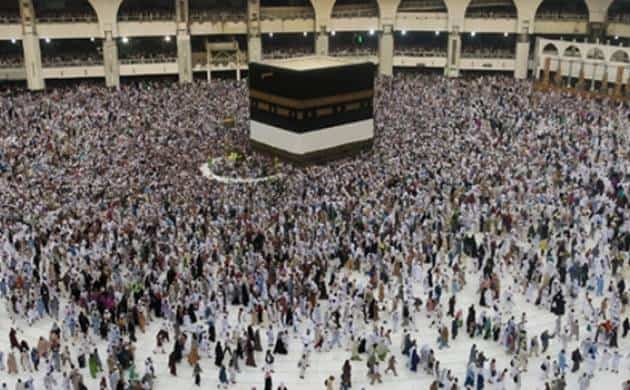Mecca: Reza from Iran is torn between the joy of taking part in this year’s annual hajj pilgrimage to Islam’s holiest sites and bitter memories of the 2015 stampede that killed hundreds of his compatriots.
Iranian pilgrims stayed away from the 2016 hajj after regional rivals Saudi Arabia, custodian of the sites in the west of the kingdom, and Iran failed to agree on arrangements and logistics.
Arrangements for the hajj, a religious duty which devout Muslims must accomplish at least once in their lifetime, are thorny and security paramount for the two million pilgrims who throng Islam’s holiest sites in western Saudi Arabia.
In 2015, a human river of pilgrims was performing the final major rite of the hajj, the “Stoning of the Devil”, near Makkah when a stampede killed hundreds of Muslims from across the world.
Riyadh issued a death toll of 769, while figures compiled from foreign officials in more than 30 countries gave a tally of around 2,300 dead.
Tehran reported the largest number of stampede victims, with 464 Iranians among the dead.
“They were murdered, they (Saudi authorities) didn’t help them,” said Reza, a 63-year-old former oil company official, seated in the lobby of a Makkah hotel.
But Reza said that new security measures now left him feeling safer. “Everything is clear this year,” he said, speaking in English.
“They’ve taken more security measures otherwise we would not have come,” he said. And “the hajj leaders of Iran have given us instructions and times” for the rituals, to avoid any repeat of the 2015 disaster.
Iranian authorities say more than 86,000 Iranian pilgrims are taking part in this year’s hajj, each equipped with an identity bracelet in case of any accident.
The “made-in-Tehran” bracelets can be connected to smartphones, allowing access to information on the hajj.
Iran lambasted Saudi Arabia in the months following the stampede, condemning its organisation of the hajj and questioning the kingdom’s very right to serve as custodian of Islam’s holiest places.
In January 2016, Sunni-dominated Saudi Arabia and Shiite Iran broke off diplomatic ties after angry Iranian protesters stormed Saudi diplomatic missions over the kingdom’s execution of a prominent Shiite cleric.
Tehran and Riyadh stand on opposing sides in several regional disputes, including the conflicts in Syria, Yemen and Bahrain, as well as this year’s Gulf diplomatic crisis between Qatar and a Saudi-led Arab bloc.
But a breakthrough accord on Iranian pilgrims taking part in this year’s hajj was struck in March after several months of negotiations during which the two Gulf states traded bitter recriminations.
AFP

